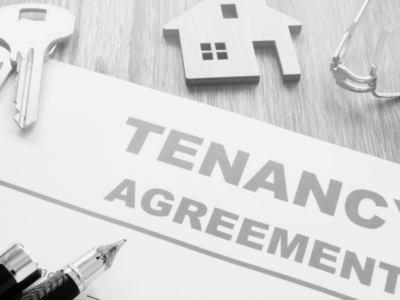With plans that would see landlords pay up to £10,000 per property for energy efficiency improvements now axed by the Prime Minister, what can we expect to see next for the private rented sector? James Kent, Founder and Managing Director of Safe2, now part of the NRLA, shares his thoughts on what the future holds.
Government proposals to introduce strict new energy efficiency rules in the private rented sector have been dropped, but what does this actually mean for landlords? And what will happen next?
The Government initially put forward plans to introduce a minimum Energy Performance Certificate (EPC) rating of C for privately rented homes back in 2020, with a consultation on the proposals ending more than two years ago in 2021.
Under the plans the new rules would be implemented from 2025 for new tenancies and 2028 for all others.
Landlords had been left in limbo since then, with no update from Government on the consultation findings, as proposed deadlines grew ever closer.
Throughout this period the NRLA flagged serious concerns about a number of aspects of the proposals.
These included the blanket cost cap of £10,000 per property, regardless of where landlords’ portfolios were located, issues around funding and the tight timescales for implementation.
Last week’s decision shows the Government has listened to those concerns – but now we must look to the future to consider what next for energy efficiency.
The ultimate ambition of proposals to improve the energy efficiency of homes in the PRS is a good one. Such work will make homes greener and cheaper to run, benefitting landlords and tenants.
However the proposals as they were laid out, the Government were asking too much of landlords, not least in the middle of a cost-of-living crisis with my colleague Ben Beadle, NRLA’s Chief Executive, outlining on BBC Newsnight last week, that for some landlords the announcement was too little, too late.
Bills of up to £10,000 per property for energy improvement works proved to be the last straw for some landlords, who made the decision to cut their losses and sell up. As a result the Government’s u-turn is cold comfort to them – and the tenants they were housing who have now lost their homes.
Other landlords, hoping to stay ahead of the game, have already shelled out for expensive improvement works.
In a statement issued on gov.uk the Government said it would, ‘scrap policies to force landlords to upgrade the energy efficiency of their properties, but instead continue to encourage households to do so where they can’, with Rishi Sunak, justifying his decision to scrap the policy, saying the huge costs associated with upgrading rental homes was likely to be passed on as higher rents to tenants.
Despite this, it is likely some kind of replacement scheme will be mooted at some point, regardless of who triumphs at the next election, with Ed Miliband, Labour’s shadow secretary for climate change, going on record as saying he is ‘in favour’ of requiring rented properties to meet a minimum EPC C rating.
Whatever any future plans include, it is vital that the private sector is given financial support to cover improvement works, and that landlords are kept in the loop when it comes to the Government’s direction of travel, enabling them to make informed decisions about their investment.
Ten thousand pounds is a lot of money in anyone’s book, but it’s clear it would have a much bigger impact on the business of a landlords with homes in poorer areas of the north that it would of those with high value properties in central London who can command much higher rents.
My colleagues at the NRLA have repeatedly stressed the risks of a one-size-fits all approach to finance across the country and the importance of tax breaks to facilitate improvements and we will continue to campaign on this going forward.
Ministers now need to use the space they are creating to develop a full plan that supports the rental market to make the energy efficiency improvements we all want to see.
This must include appropriate financial support and reform of the tax system which currently fails to support investment in energy efficiency measures.
Is there anything I should do in the meantime?
Energy efficient homes are better for everyone. They minimise energy usage and therefore costs, making them more attractive for tenants.
Making homes as energy efficient as possible will help prepare them for low-carbon heating systems, such as heat pumps. Gas boilers are still planned to be phased out in 80 percent of homes by 2035 and the Government will be increasing the Boiler Upgrade Grant to install low-carbon alternatives to £7,500.
Many landlords are already improving the energy efficiency of their properties, when they are able to do so.
Turnover of tenants or void periods are useful opportunities to upgrade, and landlords can check whether they or their tenants are eligible for support through the Great British Insulation Scheme (GBIS) or local funding schemes.
More information
The requirement for a valid EPC is still in force. You can arrange an EPC, alongside other safety certificates via Safe2. Find out more here.
For more information on the NRLA’s campaign on energy efficiency, including its key asks of Government click here.
The NRLA runs an energy efficiency course for landlords keen to find out more about improving the performance of their rental properties. For more information click here.





















Why is spending 10k on upgrades good for landlords?
Gas boilers are not being banned in the future. If you have one you can keep it. Personally I plan to replace my older ones in coming years then leave them for as long as possible. Victorian houses are not suited to heat pumps.
There is plenty of demand and tenants would rather have a cheaper rent than no house’
When will Govt learn that LL are not prepared to invest tens of thousands of pounds to save tenants £500 per year.
Rent will be increased by far more than this energy saving.
Given a choice most tenants would rather pay £500 for energy than a rent increase of say £150pcm.
Net zero is just so much bunk so should be ignored as a concept.
LL will just sell of these sub-EPC C status properties.
It simply isn’t worth the hassle and payback is decades.
Many LL will be dead by then!
So LL won’t bother and will sell off resulting in even more homeless tenants.